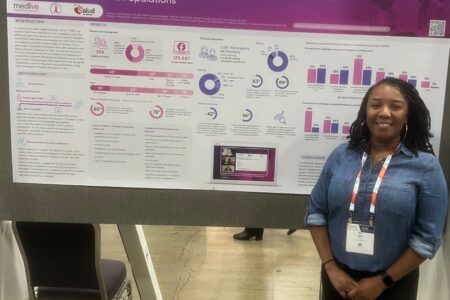
Share On Social!
Dietary and lifestyle patterns can impact your cancer risk, according to a new report from the World Cancer Research Fund (WCRF) and the American Institute for Cancer Research (AICR).
The report, Dietary and lifestyle patterns for cancer prevention: evidence and recommendations from CUP Global, lists recommendations for dietary and lifestyle patterns for cancer prevention. The list has considerations for breast and colorectal cancer, the second- and third-most-common cancers worldwide.
Recommendations include:
- For overall cancer prevention, follow a healthy dietary pattern, aim to be physically active, maintain a healthy body weight and avoid smoking. In such a dietary pattern, prioritize fruit, vegetables, and fiber-containing foods.
- For colorectal cancer prevention, include calcium-containing foods (such as dairy products) and coffee in this dietary pattern, while avoiding processed meats.
- For breast cancer prevention, avoid alcohol due to consistent evidence showing that any amount of alcohol increases breast cancer risk.
Let’s dig deeper into this report and learn more about what these recommendations mean.
Reducing Risk for Colorectal Cancer
When it comes to colorectal cancer, the WCRF/AICR report includes a dietary and lifestyle pattern to reduce the risk of bowel cancer, including:

- Maintain a healthy weight and partake in regular physical activity
- Prioritize fruits and vegetables and fiber-containing foods
- Consume coffee and food and beverages that contain calcium, such as dairy products
- Reduce consumption of sugar-sweetened beverages and alcohol
- Avoid smoking
- Avoid eating processed meats
“These new findings strongly support that adopting a healthy pattern of diet, maintaining a healthy weight, staying physically active and embracing health-conscious habits, such as avoiding tobacco and moderating alcohol, are collectively associated with a lower risk of colorectal cancer,” said Professor Edward Giovannucci, CUP Global collaborator and professor of nutrition and epidemiology at the Harvard T.H. Chan School of Public Health.
Reducing Risk for Breast Cancer
In relation to breast cancer, the WCRF/AICR report recommendations include:
- Maintain a healthy weight and partake in regular physical activity
- Prioritize fruits and vegetables and fiber-containing foods
- Lower consumption of red and processed meats and sugar-sweetened beverages
- Avoid alcohol and smoking
“By looking at our whole diet and the way we live, there are clear steps we can take to minimize our risk of breast cancer,” said Dr. Dora Romaguera, CUP Global collaborator and Lead Researcher at the Health Research Institute of the Balearic Islands.
Additional Recommendations to Reduce the Risk for Cancer
The WCRF/AICR report also recommends ways to encourage populations around the world to adhere to healthy dietary and lifestyle patterns, like:
- Use governmental policy tools, such as price reductions or subsidies for healthier foods, or taxes on unhealthier foods, to benefit those on lower incomes and help governments reduce health issues.
- Take action to enable people to be physically active and exercise so that they can follow healthy cancer preventative dietary and lifestyle patterns, given that almost a third of the world’s population has insufficient levels of physical activity.
- Address the major challenges that influence behavior related to physical activity, such as safety and accessibility concerns, which especially affect those from different backgrounds and population groups.
- Adhere to sustainable, healthy dietary and lifestyle patterns to create a positive impact on reducing greenhouse gas emissions by lowering levels of harmful nitrous oxide generated from food production and agriculture.
“Individuals have a pattern of living and, as part of this, consume foods made of nutrients. Therefore, the study of individual nutrients, as well as patterns, is important,” according to the report.
For more details and recommendations, get the full report.
Enroll in a Cancer Clinical Trial
Following healthy dietary and lifestyle patterns can impact cancer risk.
To fight cancer on a broader level, clinical trials are another important action.
Enrolling in a clinical trial, which are studies that help researchers learn more to help slow, manage, and treat diseases such as cancer for the benefit of current and future family members, can help treat the disease or ease the side effects of treatment so that survivors can have a better quality of life.
Look to Salud America!’s clinical trial page to find a research opportunity or learn from role models who have participated in a trial.
Those looking for opportunities based in San Antonio can search the Mays Cancer Center at UT Health San Antonio’s Find a Clinical Trial database to learn more about available clinical trials and eligibility requirements.
On a national level, visit clinicaltrials.gov to find a clinical trial near you.
By The Numbers
142
Percent
Expected rise in Latino cancer cases in coming years



